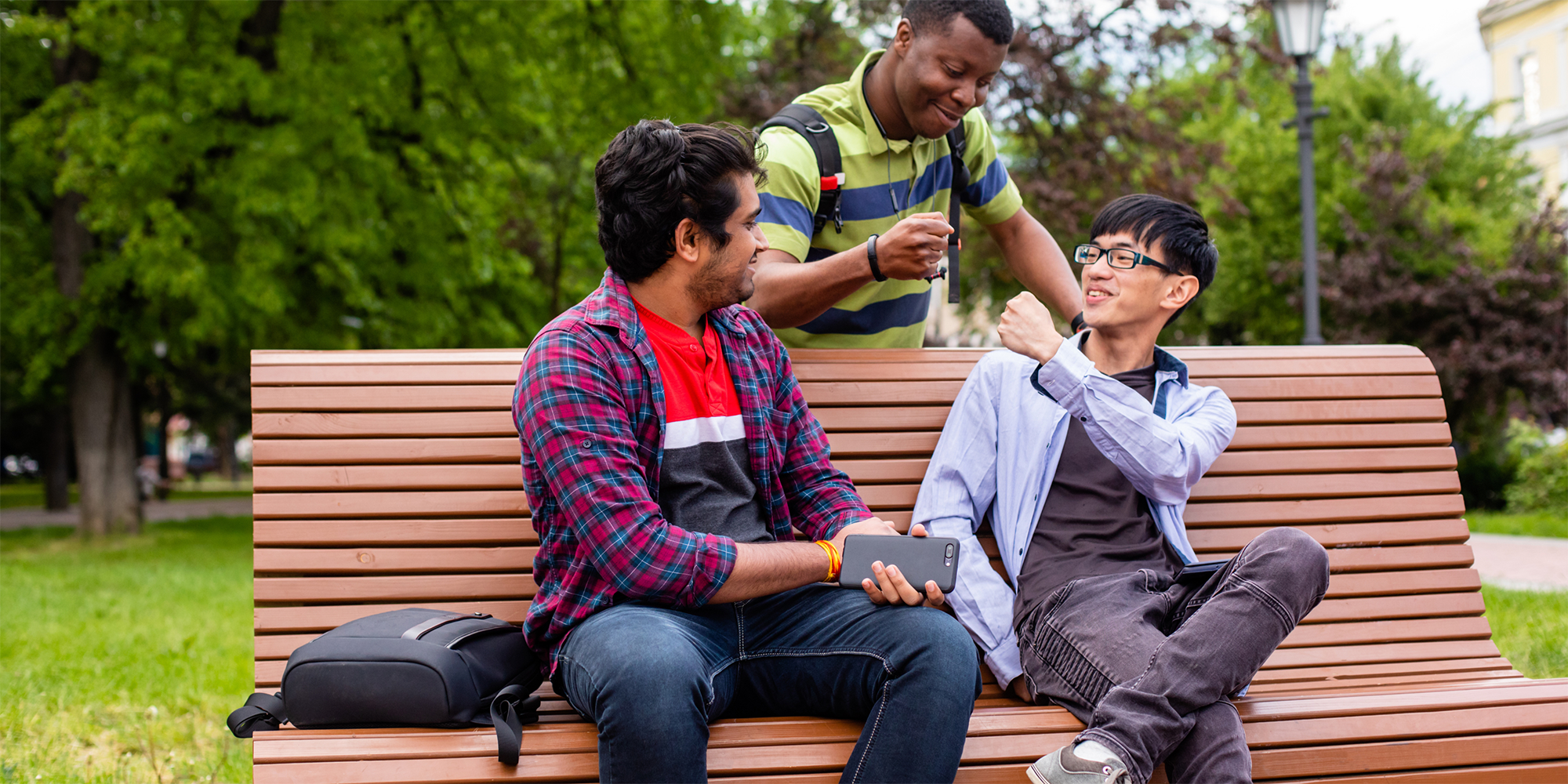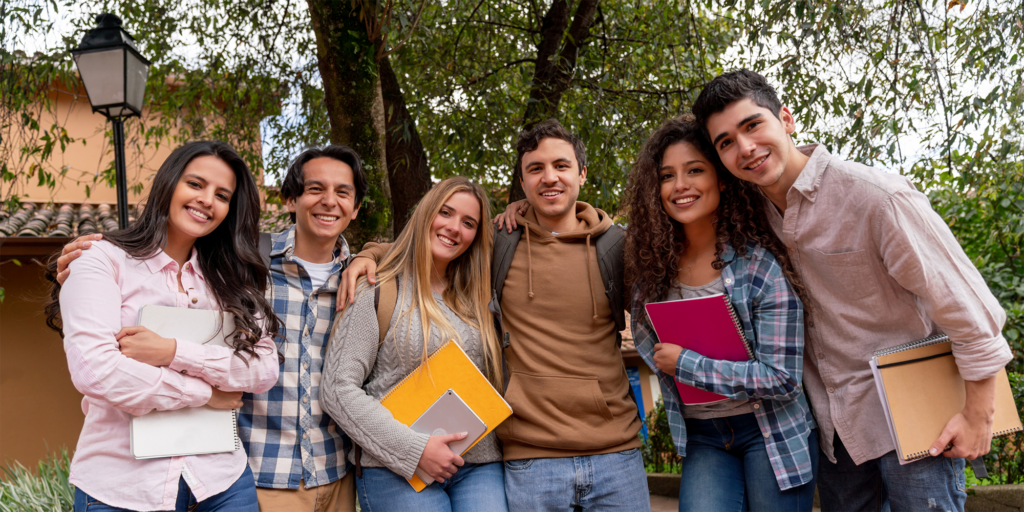Knowing how to maintain friendships after graduation is a skill that many people have or want to learn. Graduation marks the end of an academic journey, but it doesn’t have to signal the end of your friendships.
The transition from college life to the ‘real world’ can be challenging, and maintaining connections with friends can sometimes take a backseat. However, with intention and effort, you can keep those friendships alive and thriving. In this guide, we’ll explore effective ways to maintain friendships after graduation.
Contents
- 1 Understanding the Importance
- 2 Prioritize Communication
- 3 Plan Reunions and Gatherings
- 4 Embrace Virtual Hangouts
- 5 Support Each Other’s Goals
- 6 Share Interests
- 7 Travel Together
- 8 Celebrate Milestones
- 9 Resolve Conflicts Gracefully
- 10 Stay Connected with Groups
- 11 How to Maintain Friendships after Graduation: Its Possible
- 12 FAQs (Frequently Asked Questions)
Understanding the Importance

Before we dive into the strategies for maintaining friendships after graduation, it’s crucial to understand why these connections are worth preserving. Friendships formed during college hold a special place in our lives for several reasons:
Unique Bonds: College friendships are often built on shared experiences, late-night study sessions, and countless adventures. These shared memories create a unique bond that’s worth preserving.
Emotional Support: Friends from college can provide invaluable emotional support during the challenging transition from student life to adulthood. They’ve witnessed your growth and can be a source of comfort in times of need.
Networking Opportunities: Your college friends can become valuable professional contacts. They may work in diverse industries or have connections that can open doors to career opportunities.
A Sense of Belonging: These friendships contribute to a sense of belonging and community. They remind you of your roots and the journey you’ve taken together.
Prioritize Communication

Consistent communication is the lifeblood of any enduring friendship, especially after graduation when physical distances may separate you from your college buddies. Here are some tips to help you maintain these connections:
1. Embrace Modern Technology: Modern technology provides us with numerous ways to stay in touch. Utilize text messaging, phone calls, video chats, and social media to bridge the gap. These tools make it easy to send a quick hello or engage in longer conversations, no matter where you are.
2. Schedule Catch-Up Sessions: Just as you prioritize work meetings or appointments, carve out time for catch-up sessions with your college friends. Whether it’s a weekly video call or a monthly phone chat, having these regular interactions keeps the connection alive.
3. Be a Good Listener: When you do connect with your friends, be an active and empathetic listener. Show genuine interest in their lives, experiences, and challenges. A meaningful conversation can bridge the physical gap and nurture your bond.
4. Plan Visits: Whenever possible, plan visits to see your friends in person. Face-to-face interactions can be invaluable for maintaining the depth of your friendship.
Plan Reunions and Gatherings

While technology can help you stay connected, there’s nothing quite like the magic of in-person reunions to rekindle the bonds formed during college. Here’s how to make these gatherings a reality:
1. Set a Schedule: Establish a regular schedule for reunions and gatherings. Whether it’s a monthly dinner, an annual weekend trip, or attending specific events together, having a plan in place ensures that these gatherings become a consistent part of your lives.
2. Rotate Hosts: Share the responsibility of hosting reunions among your group of friends. This way, everyone gets a chance to contribute, and it keeps the gatherings fresh with new settings and experiences.
3. Create Meaningful Experiences: Plan activities that cater to everyone’s interests and passions. Whether it’s exploring a new city, hiking, attending concerts, or simply sharing a meal, creating memorable experiences together strengthens your bond.
4. Document the Moments: Take photos and videos during your reunions to capture the moments and memories. Sharing these moments online or in a dedicated group chat allows everyone to relive the experience and build anticipation for the next gathering.
Embrace Virtual Hangouts

When physical distance separates you and your college friends, don’t let it hinder your connection. Virtual hangouts provide an excellent way to stay engaged and create shared experiences. Here’s how to make the most of virtual gatherings:
1. Choose a Platform: Select a virtual platform that everyone is comfortable with. Popular choices include Zoom, Skype, Google Meet, or even social media platforms for informal chats.
2. Schedule Regular Hangouts: Just as you would plan in-person reunions, schedule regular virtual hangouts. Whether it’s a weekly trivia night, a monthly movie night, or a quarterly book club meeting, having a set schedule ensures everyone can participate.
3. Diverse Activities: Explore a variety of activities during your virtual hangouts. Host game nights where you can play board games or online multiplayer games together. Watch movies or TV shows simultaneously and discuss them afterward. You can even cook the same recipe and enjoy a virtual dinner party.
4. Themed Hangouts: Add a fun twist to your virtual hangouts by choosing themes. Have a costume night, a retro movie night, or a cultural exchange where each friend shares something from their background.
5. Share Experiences: Use screen sharing to virtually explore museums, take virtual tours, or even learn a new skill together, like painting or cooking.
Support Each Other’s Goals

In the post-graduation phase, life takes everyone on different paths, each filled with unique dreams and ambitions. To maintain strong friendships, it’s essential to be a source of support and encouragement for your friends as they pursue their goals. Here’s how you can be there for them:
1. Show Genuine Interest: Take a keen interest in your friends’ aspirations, whether it’s a new job, a business venture, further education, or personal growth. Ask questions, listen attentively, and celebrate their successes, no matter how big or small.
2. Offer Encouragement: Encourage your friends to pursue their dreams wholeheartedly. Provide words of motivation when they face challenges or self-doubt. Let them know that you believe in their abilities.
3. Be a Listening Ear: Sometimes, the journey to achieving one’s goals can be challenging. Be a supportive friend by lending a listening ear when they need to vent or seek advice.
4. Celebrate Milestones: Celebrate your friends’ milestones, whether it’s a job promotion, completing a degree, or achieving a personal milestone. Small gestures like sending a congratulatory message or a thoughtful gift can make a big difference.
5. Offer Assistance: If your skills or resources can be of help to your friends in their pursuits, offer your assistance willingly. Collaborating on projects or sharing knowledge can strengthen your bond.

One of the most effective ways to maintain friendships after graduation is by nurturing shared interests or hobbies. These common pursuits provide a strong foundation for meaningful and enjoyable interactions. Here’s how you can incorporate shared interests into your friendships:
1. Identify Common Passions: Have conversations with your friends to identify hobbies or interests you both share. It could be anything from a love for hiking, reading, painting, or a shared interest in a particular sport or TV series.
2. Join Clubs or Groups: Look for local clubs, groups, or organizations that align with your shared interests. Whether it’s joining a book club, signing up for a sports league, or volunteering for a charitable cause, participating in these activities together fosters camaraderie.
3. Plan Themed Events: Organize themed events or gatherings around your shared interests. If you’re both bookworms, host a book-themed dinner party where everyone brings a dish inspired by a favorite novel. If you’re into sports, attend games or sports events as a group.
4. Learn Together: Explore new interests or hobbies together. Take a cooking class, learn a new language, or try your hand at a creative endeavor like painting or photography.
5. Prioritize Fun: Ultimately, the goal is to have fun and create enjoyable experiences together. Shared interests not only strengthen your connection but also ensure that your time spent together is fulfilling and memorable.
Travel Together

Few experiences are as enriching and memorable as traveling with friends. Planning trips together, whether it’s exploring new destinations or revisiting favorite college haunts, can be an incredible way to create lasting memories and strengthen your bonds. Here’s how to make the most of your travel adventures with friends:
1. Choose Destinations: Discuss potential travel destinations with your friends and select places that align with your interests and preferences. Whether it’s an adventurous trek in the mountains, a relaxing beach getaway, or an urban exploration, make sure everyone is excited about the destination.
2. Plan Together: Collaborate on trip planning, from choosing accommodation and creating itineraries to budgeting and transportation arrangements. Involving everyone in the planning process ensures that the trip caters to everyone’s desires.
3. Share Experiences: While on the trip, actively participate in activities and adventures together. Whether it’s hiking, trying local cuisine, attending cultural events, or simply exploring the sights, shared experiences create lasting memories.
4. Adapt and Compromise: Traveling with friends may require flexibility and compromise. Be open to each other’s preferences and adapt to unexpected changes in plans with a positive attitude.
5. Capture Moments: Document your travels through photos and videos. These visual reminders will help you cherish the moments and reminisce about the trip together.
Celebrate Milestones

In the journey of life, it’s essential to pause and celebrate the milestones, both big and small. Forging enduring friendships after graduation is no different. Here’s why celebrating milestones is vital and how you can do it:
1. Show You Care: Celebrating your friends’ birthdays, job promotions, anniversaries, or other life milestones is a tangible way to show that you care about their happiness and well-being.
2. Strengthen Bonds: These celebrations create opportunities for shared joy and connection. They remind your friends that they have a support system in you, even as life takes you in different directions.
3. Plan Thoughtful Gestures: You don’t need grand gestures to celebrate milestones. Sending a heartfelt card, organizing a surprise virtual party, or simply offering your congratulations in a personal message can mean the world to your friends.
4. Be Present: When celebrating milestones, whether in person or virtually, be fully present. Engage in the festivities, share stories, and make your friends feel cherished and appreciated.
Resolve Conflicts Gracefully

In any long-lasting friendship, conflicts are almost inevitable. However, it’s how you handle these conflicts that can define the strength and resilience of your friendships. Here are some tips for addressing conflicts gracefully:
1. Open and Honest Communication: When conflicts arise, it’s crucial to engage in open and honest communication. Express your feelings, concerns, and perspectives calmly and respectfully, and encourage your friends to do the same.
2. Active Listening: Listen actively to your friends’ side of the story. Seek to understand their point of view and validate their feelings, even if you don’t agree with them. Empathetic listening can often diffuse tension.
3. Find Common Ground: Focus on finding common ground or shared goals. Identifying areas where you can both agree can be a starting point for resolving conflicts.
4. Avoid Blame and Criticism: Instead of blaming or criticizing each other, use “I” statements to express your feelings and needs. For example, say, “I feel hurt when…” rather than “You always do this…”
5. Give Space and Time: Sometimes, taking a step back and giving each other space and time to cool off can be helpful. You can revisit the issue with clearer heads later.
6. Seek Mediation: If the conflict persists and you’re unable to resolve it on your own, consider seeking the help of a trusted friend or counselor who can mediate the discussion.
Stay Connected with Groups

Colleges and universities often have thriving alumni associations or online groups where graduates can stay connected and engaged with their alma mater. Here’s how these networks can help you maintain friendships and discover opportunities for reunions and events:
1. Alumni Associations: Many colleges have alumni associations that organize various events and activities throughout the year. These events may include reunions, homecoming celebrations, career networking events, and more. Joining your alumni association can provide a structured way to stay connected with old friends.
2. Online Alumni Groups: In the digital age, many alumni groups have established a presence on social media platforms or dedicated websites. These online communities enable you to connect with fellow graduates, share updates, and find information about upcoming events.
3. Reunion Planning: Alumni associations often play a central role in planning class reunions. Participating in these reunions can be a fantastic opportunity to reconnect with old friends and reminisce about your college days.
4. Networking Opportunities: Alumni associations may also offer networking events or mentorship programs, providing you with a chance to connect with fellow graduates who share your professional interests.
How to Maintain Friendships after Graduation: Its Possible

Maintaining friendships after graduation may require effort, but it’s an investment in valuable relationships. These friends have witnessed your growth and shared in your challenges. They can be a source of support, laughter, and a connection to your past. By prioritizing communication, planning gatherings, and showing genuine interest in each other’s lives, you can ensure that your college friendships continue to thrive in the years to come.
FAQs (Frequently Asked Questions)
1. How often should I reach out to my college friends after graduation?
The frequency of communication can vary, but aim for regular check-ins, whether weekly, monthly, or as your schedules allow.
2. What if my college friends live far away?
Embrace virtual hangouts and plan periodic visits to maintain the connection despite the distance.
3. How can I make new friends after graduation?
Join clubs, attend local events, and participate in activities that align with your interests to meet new people.
4. What if I’ve grown apart from my college friends?
Reconnect by showing interest in their lives, sharing experiences, and addressing any unresolved issues openly and honestly.
5. How do I balance maintaining friendships with a busy post-graduation life?
Prioritize your friendships by scheduling regular catch-up sessions and planning events in advance to ensure they remain a part of your life.






